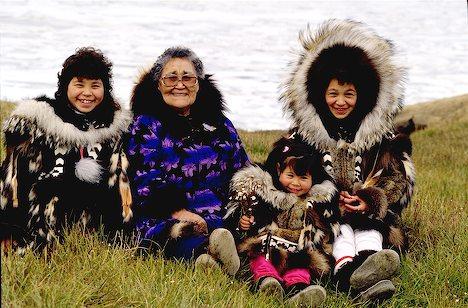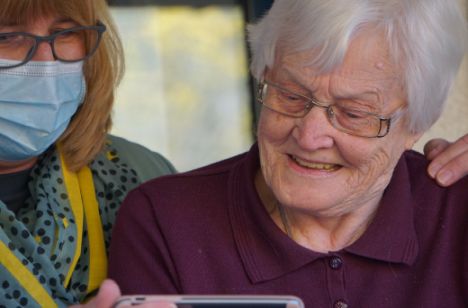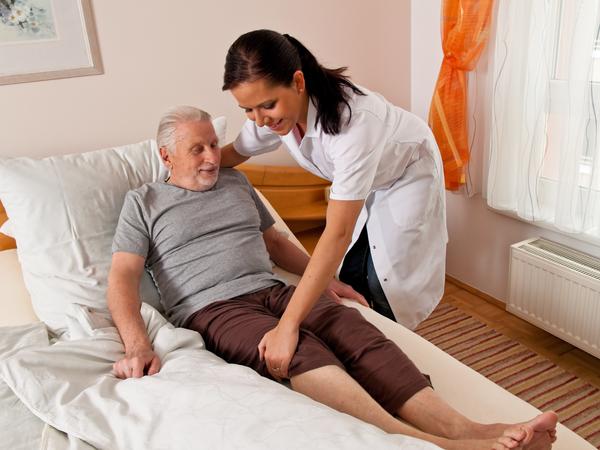Senior Care: It Takes a Village

Respecting our elders should be a courtesy ingrained in every one of us. It is an honor to take care for our elders as they once took care for us. Common grace and manners are to treat elders with dignity and respect. Senior citizens have a lifetime of experience. They comprise a generation that has survived some of the world's greatest challenges and come out better and wiser. These sages have a thing or two to teach us about enduring change and handling life’s adversity. Even if a senior’s hearing or memory isn’t what it was in the past, our elders have great wisdom to impart.
They still need a rich social circle for happiness as many elders may feel isolated over time; which can lead to health decline. It’s important to take time to visit elderly loved ones to give them purpose. Eating together allows family to share stories and gain wisdom from their elders. It is one thing to read about a great event in time, while it is another to be engrossed in hearing it from someone with first-hand knowledge. There’s an undeniable strength in family stories. In fact, putting together an oral family history can not only bring family members together and strengthen the ties between generations. Family history translates into stronger family bonds and life successes.
The most paramount things to the loved ones of our elders is their overall health. It’s important to tell them how much you appreciate and respect them. When caring for sages, we have to remember they too have healthy pride and modestly. There are times where particular actions can feel embarrassing to your elder. To help with feelings of embarrassment, we can use distractions to move the process along with ease. Reminiscing about shared good memories or singing favorite old songs. Bubbles, spa-like soaps, a few flameless candles and some soft music can turn a dreaded routine into something the senior can look forward to. This way, seniors can preserve modesty whenever possible, such as immediately before or after bathing.
One way to make personal care less stressful is to provide care in a soothing and peaceful environment. This can be as simple as keeping your loved one’s bed and bathroom tidy, reducing feelings of frustration and anxiety. Some seniors find it easier to relax when listening to peaceful music or nature sounds, while others enjoy calming scents, like lavender or jasmine.
The importance of being independent is twofold for seniors. Independence is sometimes the only thing seniors may feel they can control as certain aspects of their life change with age. Additionally, maintaining independence promotes a sense of achievement that for many seniors generates a great sense of self-worth and well-being.
If your elder is able to live at home with no assistance it is still important to allow them to feel appreciated. If they are in need of some assistance, it is of the utmost importance that they maintain the levels of independence they can maintain. In these cases, living home alone does not become a lost cause. it is important for seniors to be involved in their own care. When assisting seniors, don't come in and perform all their duties. This facilitates feelings of accomplishment and maintains the very essence of independence for which seniors strive.
To help seniors feel satisfied with life despite their condition, they need to move around even if it’s only within their own surroundings. Older adults need proper nutrition to stay active and healthy. Moreover, exercising regularly will prevent chronic illnesses, reduces the chances of injury, and improves mood. The use of mobility tools is the most common way for a senior to stay active. If there is no need for these tools, we still want them to stay safe. There are other items; no-slip attire and cookware that will ensure they are safe at all times. Elderly people need activities and hobbies that are productive and engaging so they can pass the time instead of staying idle. Being able to do these safely on their own.
Different or alternative ways to treat seasonal affective disorder (SAD) and other conditions is by exposure to artificial light. Light therapy is a way to combat SAD; a type of depression that occurs at a certain time each year, usually in the fall or winter. "Bright light treatment may provide a viable alternative for patients who refuse, resist, or do not tolerate some medical treatments," researcher Ritsaert Leiverse, MD, of the department of psychiatry VU University Medical Center in Amsterdam, the Netherlands, and colleagues write in the Archives of General Psychiatry. In addition to lifting their moods, bright light therapy improved sleep and optimized levels of the neurotransmitter serotonin. Circadian rhythm disturbances are also frequently found among elderly people who expose themselves less frequently to bright environmental light. “Human beings evolved under the day-night cycle,” said Richard Schwartz, MD.
As the givers of care to our sages, remember to give them the second childhood they most richly deserve.





